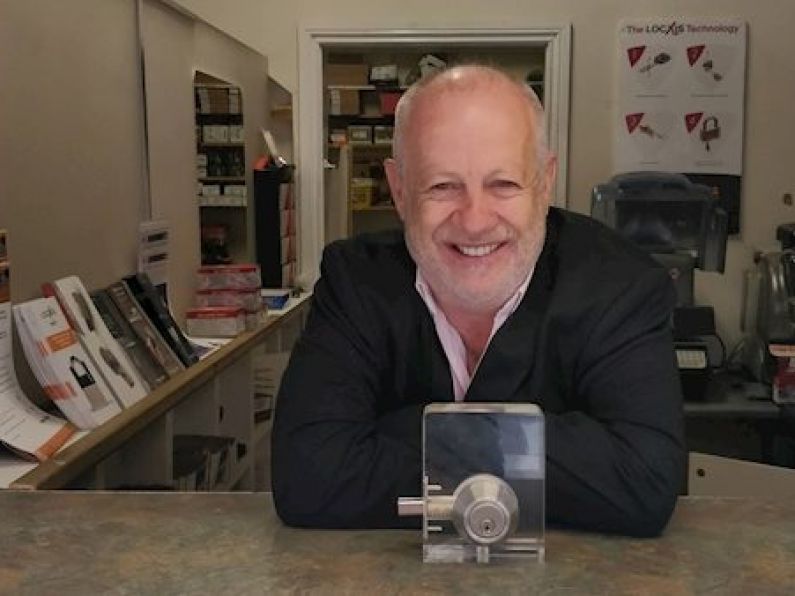A locksmith from Dublin has come up with a smart lock which allows the elderly and people with disabilities to open doors by touch.
An electronic tag carried in a pocket or purse allows those with limited dexterity to enter their home without having to struggle with keys. The patented technology transforms radio frequency signals to touch, allowing the wearer or carrier of the tag to easily open a lock.
Dave O’Toole, who has a shop on Dublin’s Amiens St, came up with the idea of a touch lock when his mother struggled to open doors following a stroke.
Last month, his surprise win in a Silicon Valley pitching competition gave validation to his product.
His 60-second pitch for his Touch2Access prototype wooed judges from crowdfunding platform Indiegogo, telecommunications giant AT&T, and Fortune 500 company Arrow Electronics.
Mr O’Toole was considering launching a crowd- funding campaign and had travelled to San Francisco to take part in a hardware start -up bootcamp. Since his win over 120 fellow participants from the US and Asia, he has received certification from Arrow and the multinational has expressed interest in a global licensing deal.
Touch2Access, he explains, is convenient and secure and eliminates the need to present a card or enter a digital code.
Unlike other systems on the market, the technology does not operate through proximity or fingerprint.
“The key tag stays in the pocket or the purse, and when you touch the door, it then sends a signal from the key tag over the body to the motorised lock, which opens automatically. So once you touch the door, the lock opens; you just have to push it,” he says.
While researching his concept for an electronic touch lock, Mr O’Toole realised that everyone he spoke with knew at least one person who had difficulty with keys, whether they were elderly; had arthritis, Parkinson’s or another disease; or had suffered from a stroke.
Having worked on his idea, he approached the Nimbus Institute based at Cork Institute of Technology. Subsequent funding through Enterprise Ireland’s Innovation Partnership assisted in the development of the technology.
While the hardware, comprising of an electronic lock and tag, is aimed at the elderly and those with disabilities, a complementary smartphone app gives the system dual function for younger people and those who prefer a tech option.
Mr O’Toole explains that the system can also be used for Airbnb hosts to give guests a key over a phone or to connect to a smart home to remotely open and lock a door from a computer anywhere in the world. The fob will also have a manual key override to avoid the user getting locked out, and a security alarm if the lock is tampered with.
The potential for the technology is limitless for anyone who wants a hands-free and secure option to access their home or workplace. Mr O’Toole says Touch2Access could also provide convenience for parents with young children, returning from a supermarket trip with groceries, or office workers carrying files.
He says the technology could potentially control any electronic device by touch, allowing someone to carry a tag in their pocket and travel from home to their office without the need to swipe a card or key in a code.
Mr O’Toole, who is president of the European Locksmith Federation, representing 11,000 locksmiths, explains that his decision to launch a crowd-funding campaign was for the marketing benefits, in addition to financing.
The company’s primary focus is the US market, and in particular retirement associations and foundations for diseases such as Parkinson’s, which is predicted to affect 1m Americans by 2020.
The Touch2Access system can replace 90% of existing locks which use either a standard European lock or an American deadbolt.
Mr O’Toole has acquired a US patent for his technology and is patent pending in the UK with a European application under way.
The 60-year-old, who has invested €120,000 of his own money into developing the technology, is preparing to launch an Indiegogo campaign later this summer to turn his prototype into a commercial product.






